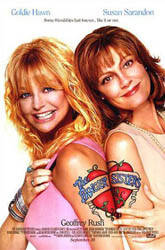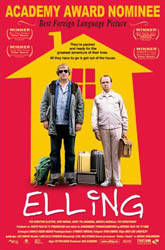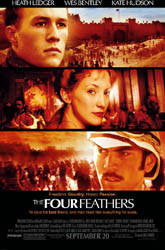 Director: Starring:
OTHER REVIEWS: Anywhere
But Here The
Divine Secrets of the Ya-Ya Sisterhood The
Out-of-Towners Tumbleweeds |
The Banger Sisters BY: DAVID PERRY Two years ago Kate Hudson made her grand premiere in films playing the 1970s rock groupie Penny Lane in Cameron Crowe's Almost Famous. Lane, helped by Hudson's ethereal presence, was a life force to most of the characters in the film. It was her love for the music that most represented Cameron Crowe's own love for it and, ultimately, she served as the most important character even though she was more of a supporting player. Hudson is, of course, the daughter of Goldie Hawn, who has been on a terror trail of bad films ever since, well, Private Benjamin. Oddly, Hawn seems to think that the only way to resurrect her career is to play Penny Lane in the present. Even more oddly, she seems to be onto something. This is not to say that Hawn's portrayal of middle-aged, down-and-out former groupie Suzette has near the same impact of Hudson's Penny, but Hawn does show a long lost side that has been overshadowed by her annoying kookiness. Even if seeing Penny Lane as a 57-year-old waitress at LA's Whiskey-a-Go-Go may not be the most heartening image of the year, it is somewhat fitting. In the early moments of the film, this elder stateswoman of groupies is fired from her bartending job because the owner seems to have less interest in her nostalgia factor than the customers. He couldn't care less that Jim Morrison once passed out on top of her in the bar's bathroom; what matters to him is that she's not much of a waitress. Hoping to get a little money out of her former best friend, Suzette begins a road trip for Phoenix (even picking up a hitchhiker/love interest in Geoffrey Rush's Harry). As two inseparable faces on the 1970s rock scene, Suzette and Vinny (Sarandon) were called "the Banger Sisters" by Frank Zappa for their love of having sex with any and every musician they could find (their story is slightly based on the travails of "the Plaster Casters" who made phallic plaster casts of any and every musician). But Vinny has changed her life around, not going by her real name Lavinia and marrying rich and conservative lawyer Raymond Kingsley (Thomas). No one in the Kingsley household knows about Lavinia's past and, fearing that they might learn of her past indiscretions from Suzette, Lavinia offers Suzette to just leave. But, of course, this is a Hollywood movie and our faithful protagonist cannot be battered by an upper-class twit who spends her days planning debutante balls. Before long, the two are smoking old pot in the Kingsley basement, sharing Suzette's skin-tight clothes, and looking at photo albums of musicians' genitals. Little known fact: the '70s will set us free. While the character of Suzette may feel alive, the enjoyment of the one character hampers all the others. Everyone in this film is shown as empty and forgettable. This is a movie that has no interest in showing that there are some good things about growing up rich -- instead, director/screenwriter Bob Dolman sees this as a way to prove that all rich kids are inherently spoiled, all rich husbands are inherently vapid, and all rich wives are boring. The nostalgia that the film wants to enliven is nearly nonexistent, bringing all of its notability from a tangential connection to Almost Famous. Groupies have never been terribly interesting, especially when carrying an entire film; this is still true when they reach menopause. If the film had somehow found a way to juggle both lives --
upper and lower echelons of society -- with the same amount of compassion, this movie
might not have seemed so marginal. Instead, what comes across is a (relatively) rich man's
The Divine Secrets of the Ya-Ya Sisterhood. |



